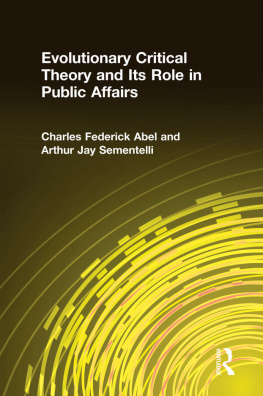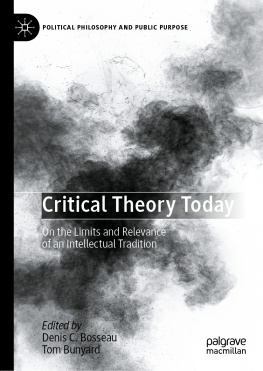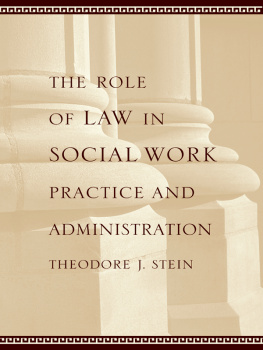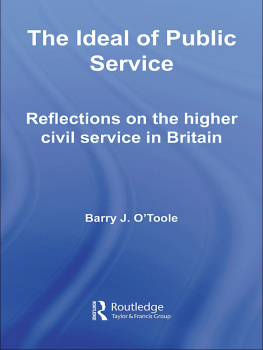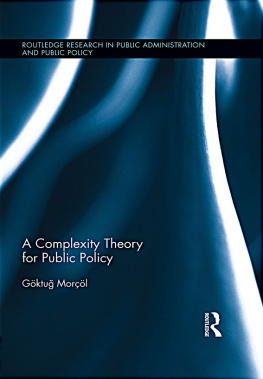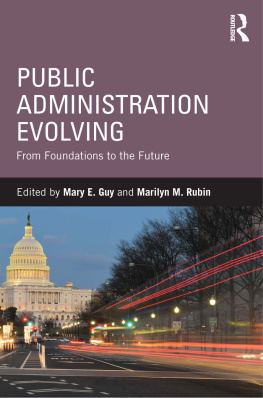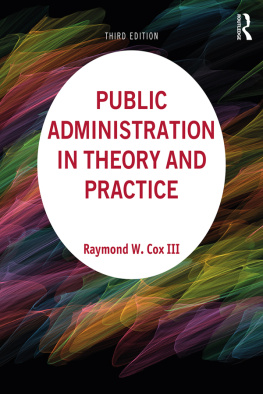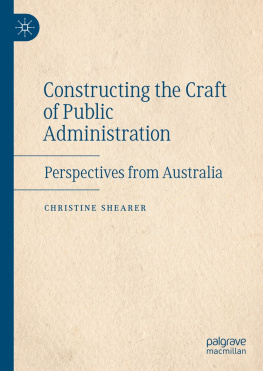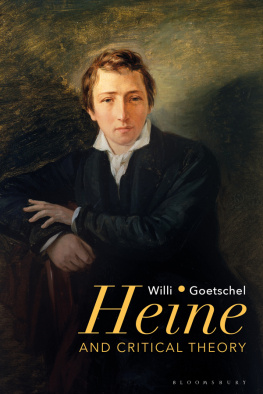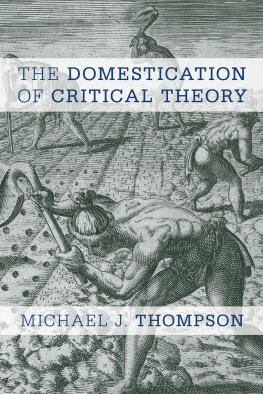Evolutionary Critical Theory and Its Role in Public Affairs
Evolutionary Critical Theory and Its Role in Public Affairs
Charles Frederick Abel and Arthur J. Sementelli
First published 2004 by M.E. Sharpe
Published 2015 by Routledge
2 Park Square, Milton Park, Abingdon, Oxon OX14 4RN
711 Third Avenue, New York, NY, 10017, USA
Routledge is an imprint of the Taylor & Francis Group, an informa business
Copyright 2004, Taylor & Francis. All rights reserved.
No part of this book may be reprinted or reproduced or utilised in any form or by any electronic, mechanical, or other means, now known or hereafter invented, including photocopying and recording, or in any information storage or retrieval system, without permission in writing from the publishers.
Notices
No responsibility is assumed by the publisher for any injury and/or damage to persons or property as a matter of products liability, negligence or otherwise, or from any use of operation of any methods, products, instructions or ideas contained in the material herein.
Practitioners and researchers must always rely on their own experience and knowledge in evaluating and using any information, methods, compounds, or experiments described herein. In using such information or methods they should be mindful of their own safety and the safedy of others, including parties for whom they have a professional responsibility.
Product or corporate names may be trademarks or registered trademarks, and are used only for identification and explanation without intent to infringe.
Library of Congress Cataloging-in-Publication Data
Abel, Charles F.
Evolutionary critical theory and its role in public affairs / Charles Frederick Abel and Arthur Jay Sementelli.
p. cm.
Includes bibliographical references and index.
ISBN 0-7656-1046-9 (cloth: alk. paper) ISBN 0-7656-1047-7 (pbk.: alk. paper)
1. Public administration. 2. Critical theory. I. Sementelli, Arthur Jay, 1970 II. Title.
JF1351.A24 2004
351.01dc21
2003050598
ISBN 13: 9780765610478 (pbk)
ISBN 13: 9780765610461 (hbk)
Contents
This book represents the culmination of an extensive collaboration between the two authors over the past five years. Throughout this process we have read, revised, and developed the ideas originating from a single paper at the Public Administration Theory Network. This in turn developed into a literature stream and ultimately into what is before you now. We owe a great debt to our colleagues at PAT-Net, as well as to Richard Box and others who encouraged us throughout the process.
At the beginning of our collaboration, after an extensive reading of critical theory, we discovered in our discussions that some of the elements we were exploring seemed to parallel the work of Thorstein Veblen. Initially, our impression was that he seemed to be an odd sort of fellow who did not quite fit in either as a sociologist or an economist, and that our discovery was a coincidence. Over time, we found that our initial discovery seemed to consistently fill a conceptual void in our readings of critical theory. It was at this point we decided to incorporate the ideas we learned through this "close reading" of Veblen and others into our understanding of critical theory. At the end of this process, we found that this incorporation evolved into a comprehensive supplement to the body of knowledge that is critical theory.
We then had to concern ourselves with the "so what" question. What did it matter for practical purposes that we developed an interesting take on critical theory? How could it help us broadly as a profession? During our writing process, we found that this "Evolutionary Critical Theory" as we coined it seemed to be exceptionally useful for addressing some of the classic arguments against critical theory. In addition, it seemed like this idea could help reconcile some major issues within public administration. However, this reconciliation might only happen if we could demonstrate first, that public administration is in fact a discipline and second, that it had ontological status.
With both a discipline and ontology, then public administration could meaningfully contribute to the body of knowledge as a profession and as theory generally. We found that by understanding of power and emancipation in this context, that public administration became essential to both theory and praxis due to its unique position in the world.
The discovery that public administration was essential to making a number of our arguments function in both theory and practice allowed us to deal with a few of the "big" questions people want to see in a book. We began to structure some alternative arguments for the identity, legitimacy, and epistemology of public administration. We hope the readers will find it useful, and suspect that a number will find our arguments both compelling and controversial. However, if our arguments at least get people to consider some of the possibilities of an Evolutionary Critical Theory, then we have achieved our goal.
We would like to thank the journal Administrative Theory and Praxis and the Public Administration Theory Network for supporting this book. Administrative Theory and Praxis graciously allowed us to build from articles that appeared in their journal to create several chapters in this book. In addition, the feedback we received from PAT-Net and its members allowed us to craft a much better piece than we could have otherwise.
Evolutionary Critical Theory and Its Role in Public Affairs
1
Prcis
Administrative theory and practice are concerned with good governance. Now, many argue that theory in public administration is myth and illusion and that "public administration" itself is nothing other than a set of practices described and explained through a cluster of theories and methodologies that are borrowed from a variety of other social and natural sciences. As such, public administration constitutes a "field" and not a "discipline," and as a field it can claim no theory of its own. Instead, it must rely on theories developed by actual disciplines. Moreover, because what public administration ostensibly studies (i.e., administrative phenomena and behavior) is conventional in nature and not "brute data," it lacks any tangible reality beyond the conventional practices, behaviors, and discourses it studies. Because these conventions alone are the proper subjects of normative and empirical theory, public administration (a mere "artifact" assembled from them) has no ontological status and cannot itself be the subject of normative or empirical theory.
We will argue that this thesis is in error and that public administration is in fact a discipline developed to systematically work out and professionally apply the ways and means of good governance. Consequently, it can develop a theory of its own. We will argue further that its subject matter is ontologically constituted and that as a consequence its theory has ontological status. We will then argue that given the nature and status of its subject matter, public administ ration must employ synergistically and critically the methods of traditional social science, institutionalism, and hermeneutics to develop its theory and guide its practice. Finally, we will argue that a reconstructed form of critical theory ("Evolutionary Critical Theory") is especially helpful as a synergistic and self-critical agent and hence a powerful tool for administrative scholars and practitioners in their endeavors to realize good governance. To better present our argument, let us delineate briefly the key points that we will detail in the remaining chapters.

